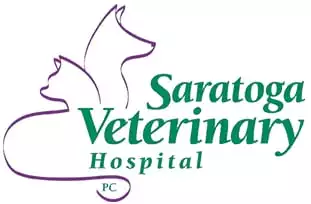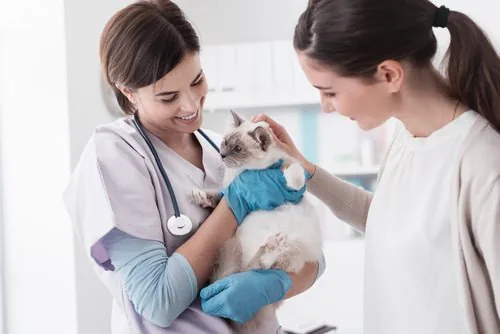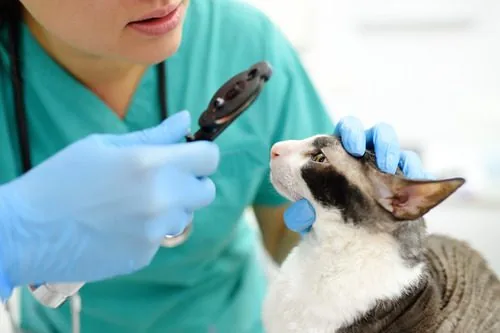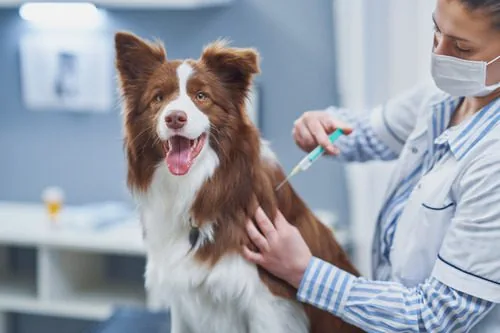Hyperthyroidism in Cats: Symptoms & Treatment
Hyperthyroidism is one of the most common hormonal conditions affecting middle-aged and senior cats. If your cat has been losing weight despite a healthy appetite or even an increased one, it could be more than just aging. Hyperthyroidism in cats can lead to serious health complications if not properly managed, but several effective treatment options are available. In this blog, we’ll break down the symptoms to watch for, treatment options available, and the pros and cons of each so you can make an informed decision about your cat’s care. For personalized care and diagnostics, call Saratoga Veterinary Hospital in Saratoga Springs at (518) 587-3832.
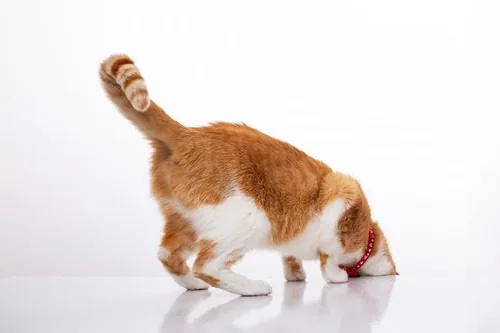
What Is Hyperthyroidism in Cats?
Hyperthyroidism in cats is caused by the overproduction of thyroid hormones (T3 and T4) from the thyroid glands, typically due to a benign growth or hyperplasia. These hormones regulate your cat’s metabolism, and when they’re produced in excess, they essentially put your cat’s body into overdrive. This condition most commonly affects cats aged 10 and older, though it can occur earlier. Left untreated, hyperthyroidism can lead to high blood pressure, heart disease, and significant weight loss. Early detection and treatment help improve your cat’s quality of life and reduce the risk of secondary complications.
Symptoms of Hyperthyroidism in Cats
The signs of hyperthyroidism can be subtle at first, but they tend to become more noticeable over time. If your cat is exhibiting any of the symptoms below, it’s worth scheduling a veterinary exam:
- Noticeable weight loss, even with a good appetite
- Increased appetite (polyphagia)
- Increased thirst and urination
- Vomiting or diarrhea
- Hyperactivity or restlessness
- Rapid or irregular heart beat
- Poor coat quality (greasy, unkempt fur)
- Muscle wasting or weakness
These symptoms may mimic other diseases, which is why bloodwork is essential for confirming a diagnosis of hyperthyroidism in cats.
How Hyperthyroidism Is Diagnosed in Cats
A diagnosis typically starts with a physical exam, during which your veterinarian may feel an enlarged thyroid gland in your cat’s neck. Bloodwork is then used to measure thyroid hormone levels, particularly T4. Additional tests may include:
- Complete Blood Count (CBC)
- Biochemistry Panel
- Urinalysis
- Blood pressure measurement
- Cardiac evaluation (in some cases)
These diagnostics help rule out other diseases and evaluate your cat’s overall health before starting treatment.
Can Hyperthyroidism in Cats Be Treated?
There are several ways to manage hyperthyroidism in cats. Each option has its benefits and drawbacks, depending on your cat’s age, overall health, and lifestyle. Below is a breakdown of the most common treatments available.
Radioactive Iodine Therapy (I-131)
Radioactive iodine (I-131) is widely considered the gold standard for treating hyperthyroidism in cats. It involves a single injection of radioactive iodine, which is selectively absorbed by the overactive thyroid tissue. This destroys the abnormal cells while leaving the rest of the body unharmed.
Pros:
- Permanent cure in over 95% of cases
- No daily supplies required after treatment
- Low risk of side effects
- Ideal for otherwise healthy cats under 12 years of age
Cons:
- Higher up-front cost (but often more cost-effective long-term)
- Requires hospitalization for several days due to radiation safety regulations
- Some follow-up care at home is needed
- Not typically available at general practices
At Saratoga Veterinary Hospital, we often refer patients to specialty centers like Hypurrcat or ThyroCat, which are experienced in administering this therapy.
Daily Treatments
Oral supplies remains the most common first-line treatment for hyperthyroidism in cats. These drugs, such as methimazole, work by blocking the production of thyroid hormones but do not cure the disease.
Forms Available:
- Tablets
- Liquid
- Transdermal cream (applied to the ear, compounded by a pharmacy)
Pros:
- Non-invasive
- Affordable up front
- Easy to adjust dosing based on bloodwork
- Transdermal options available for cats who resist pills
Cons:
- Lifelong commitment to daily dosing
- Potential side effects: vomiting, poor appetite, liver toxicity, or bone marrow suppression
- Requires regular bloodwork to monitor hormone levels and detect adverse reactions
- May not be ideal for cats with compliance issues
This option can work well for cats whose owners are comfortable with long-term supply routines and regular check-ins with their veterinarian.
Dietary Therapy
Some specialty diets, such as Hill’s y/d, are designed to reduce iodine levels in the diet, which helps lower thyroid hormone production.
Pros:
- Non-invasive
- No additional supplies needed
- Useful in early or mild cases
Cons:
- Requires strict feeding compliance (your cat can’t eat anything else)
- May not be effective for every cat
- Not recommended if multiple pets are in the household and share food
While dietary therapy can be a helpful tool in specific situations, it’s not usually considered a standalone solution for moderate to severe hyperthyroidism in cats.
Surgery (Thyroidectomy)
Surgical removal of the thyroid gland (or glands) used to be a common treatment before radioactive iodine became more accessible.
Pros:
- One-time procedure
- Potentially curative
Cons:
- Requires general anesthesia
- Risk of damaging the parathyroid glands, which regulate calcium
- Less commonly used today due to availability of safer alternatives
Surgery may be considered in rare cases where other treatments aren’t feasible.
Choosing the Best Treatment for Your Cat
Deciding how to treat hyperthyroidism in cats depends on a variety of factors, including:
- Your cat’s age and general health
- Kidney function (assessed through bloodwork)
- Ability to medicate at home
- Budget and willingness to pursue hospitalization
- Whether a cure or long-term management is your goal
Cats under 12 years of age and in good health are often excellent candidates for radioactive iodine therapy. While the up-front cost may seem high, it can eliminate the need for ongoing treatmentss, regular monitoring, and long-term expenses. If you’re unable to pursue I-131 treatment, daily treatments and bloodwork can be an effective way to manage the condition. Your veterinary team can even coordinate with compounding pharmacies to create a formulation that suits your cat’s (and your own) preferences for administration.
Supporting Your Cat’s Health After Diagnosis
Once your cat is diagnosed with hyperthyroidism, routine care becomes even more important. Regardless of the treatment option you choose, ongoing monitoring is essential to make sure hormone levels stay in a healthy range and to catch any emerging complications early. At Saratoga Veterinary Hospital, we’ll walk with you every step of the way, helping you understand your options, answering your questions, and providing thoughtful, high-quality care to support your cat’s well-being. Call us at (518) 587-3832 to schedule a thyroid screening or to speak with our team about treatment options for hyperthyroidism in cats. We’re here to help you find the right solution for your cat and your family.
Recent Posts
What is a Fear Free Veterinarian? A Calmer Approach to Pet Care
What is a Fear Free Veterinarian? A Calmer Approach to Pet Care For many pets, a trip…
Dog Licking Paw: Symptoms & Treatment
Dog Licking Paw: Symptoms & Treatment If you’ve noticed your dog licking their paws more than usual,…
Dog Nose Dripping: Why Your Dog Has a Runny Nose
Dog Nose Dripping: Why Your Dog Has a Runny Nose A dog’s nose is an important part…
Cat Eye Infection: Symptoms & Treatment
Cat Eye Infection: Symptoms & Treatment When your cat has an irritated or weepy eye, it’s hard…
Lyme Disease Vaccines for Dogs
Lyme Disease Vaccines for Dogs Protecting your dog from Lyme disease is an essential step in supporting…
About Saratoga Veterinary Hospital
Saratoga Veterinary Hospital is proud to serve as your local veterinarian of choice in WIlton, NY and the surrounding areas. Since its founding in 1973 by Dr. Sofarelli, our animal hospital’s main goal has been to strengthen the human-animal bond with exceptional veterinary medicine and client services.


